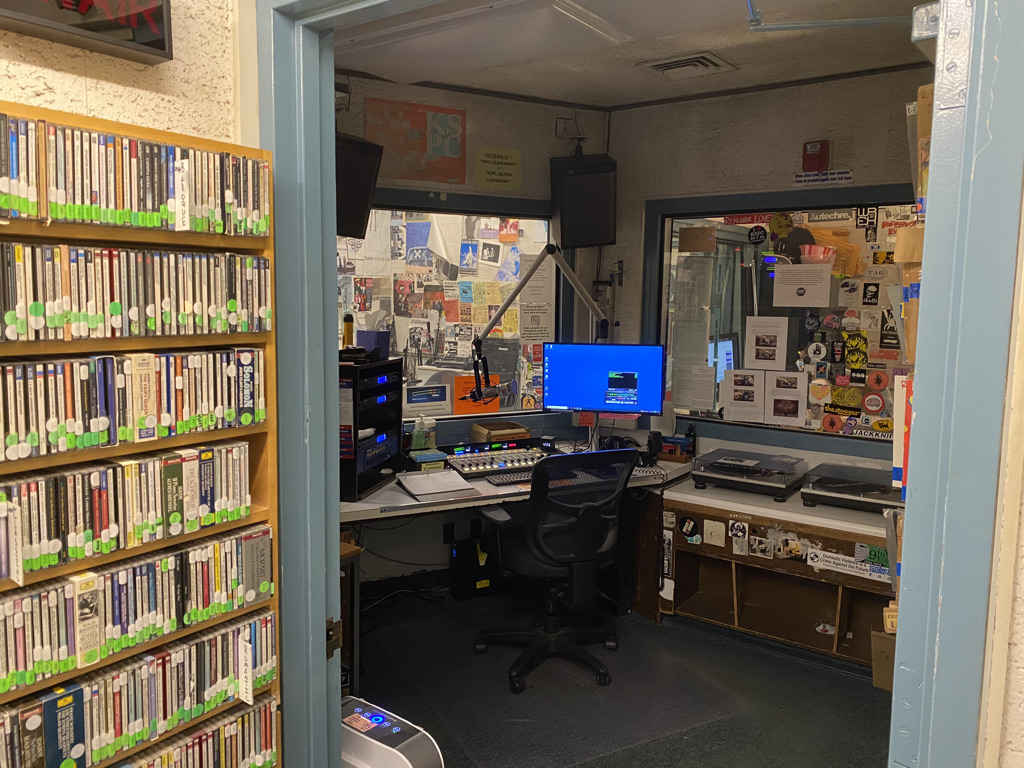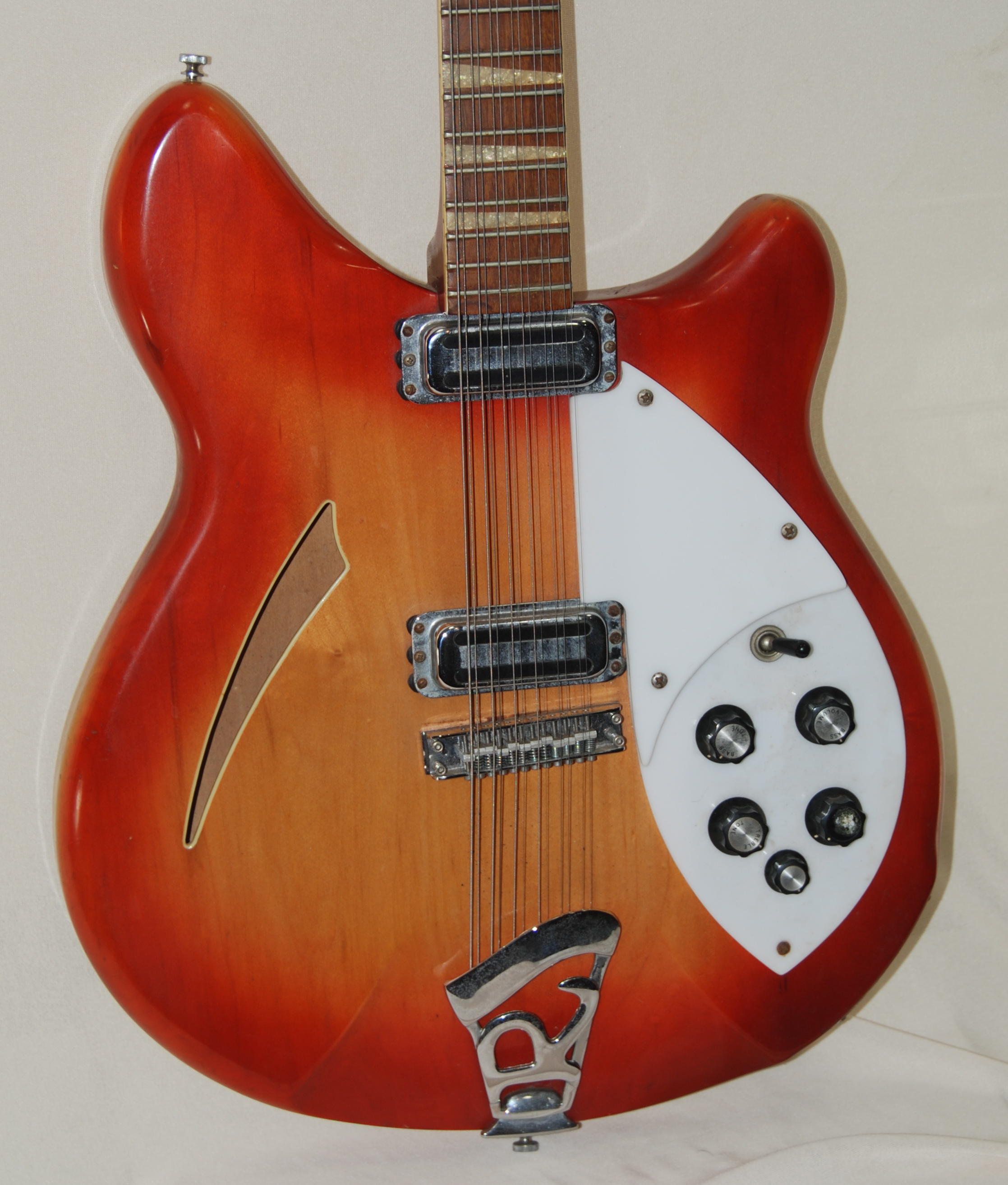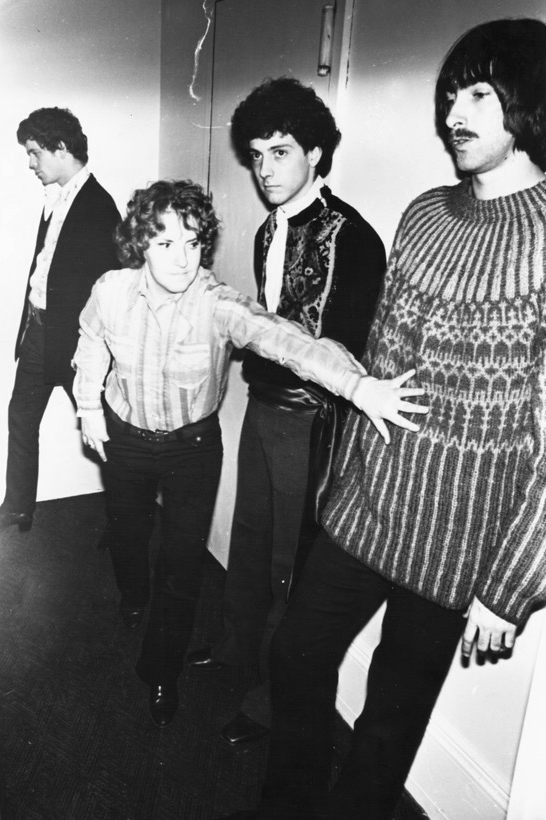|
College Rock
College rock is rock music played on student-run university and college campus radio stations located in the United States and Canada in the 1980s and 1990s. The stations' playlists were often created by students who avoided the mainstream rock played on commercial radio stations. Characteristics An outgrowth of hardcore punk, college rock originated less as a genre term and more as a signal of the medium -- college radio -- by which college rock acts were often heard. As a result, the genre featured a high degree of diversity and eclecticism, meaning that "on college radio ... screaming noise, retro country, avant-garde electronics, and power pop could coexist, linked by cheap-sounding singles recorded by local bands." Acknowledging this variety, some common aesthetics among college rock bands do exist, with some writers characterizing it largely as a combination of the experimentation of post-punk and new wave with a more melodic pop style and an underground sensibility. '' T ... [...More Info...] [...Related Items...] OR: [Wikipedia] [Google] [Baidu] |
Post-punk
Post-punk (originally called new musick) is a broad genre of music that emerged in late 1977 in the wake of punk rock. Post-punk musicians departed from punk's fundamental elements and raw simplicity, instead adopting a broader, more experimental approach that encompassed a variety of avant-garde sensibilities and non-rock influences. Inspired by punk's energy and do it yourself ethic but determined to break from rock cliches, artists experimented with styles like funk, electronic music, jazz, and dance music; the music production, production techniques of dub music, dub and disco; and ideas from art and politics, including critical theory, modernist art, Film, cinema and modernist literature, literature. These communities produced independent record labels, visual art, multimedia performances and fanzines. The early post-punk vanguard was represented by groups including Siouxsie and the Banshees, Wire (band), Wire, Public Image Ltd, the Pop Group, Magazine (band), Magazine, Joy ... [...More Info...] [...Related Items...] OR: [Wikipedia] [Google] [Baidu] |
College Radio
Campus radio (also known as college radio, university radio or student radio) is a type of radio station that is run by the students of a college, university or other educational institution. Programming may be exclusively created or produced by students, or may include program contributions from the local community in which the radio station is based. Sometimes campus radio stations are operated for the purpose of training professional radio personnel, sometimes with the aim of broadcasting educational programming, while other radio stations exist to provide alternative to commercial broadcasting or government broadcasters. Campus radio stations are generally licensed and regulated by national governments, and have very different characteristics from one country to the next. One commonality between many radio stations regardless of their physical location is a willingness—or, in some countries, even a licensing requirement—to broadcast musical selections that are not categ ... [...More Info...] [...Related Items...] OR: [Wikipedia] [Google] [Baidu] |
Jangle
Jangle or jingle-jangle is a sound typically characterized by undistorted, treble-heavy electric guitars (particularly 12-strings) played in a droning chordal style (by strumming or arpeggiating). The sound is mainly associated with pop music as well as 1960s guitar bands, folk rock, and 1980s indie music. It is sometimes classed as its own subgenre, jangle pop. Music critics use the term to suggest guitar pop that evokes a bright mood. Despite forerunners such as Jackie DeShannon, the Searchers and the Everly Brothers, the Beatles and the Byrds are more commonly credited with launching the popularity of jangle. The name derives from the lyric "in the jingle-jangle morning, I'll come following you" from the Byrds' 1965 rendition of Bob Dylan's " Mr. Tambourine Man". Although many subsequent jangle bands drew significantly from the Byrds, they were not necessarily folk rock as the Byrds were. Since the 1960s, jangle has crossed numerous genres, including power pop, psych ... [...More Info...] [...Related Items...] OR: [Wikipedia] [Google] [Baidu] |
Hook (music)
A hook is a musical idea, often a short riff, passage, or phrase, that is used in popular music to make a song appealing and to "catch the ear of the listener." The term generally applies to popular music, especially rock, R&B, hip hop, dance, and pop. In these genres, the hook is often found in, or consists of, the chorus. A hook can be either melodic or rhythmic, and often incorporates the main motif for a piece of music.Davidson, Miriam; Heartwood, Kiya (1996). ''Songwriting for Beginners'', p.7. Alfred Music Publishing. . Definitions One definition of a hook is "a musical or lyrical phrase that stands out and is easily remembered." Definitions typically include some of the following: that a hook is repetitive, attention-grabbing, memorable, easy to dance to, and has commercial potential and lyrics. A hook has been defined as a "part of a song, sometimes the title or key lyric line, that keeps recurring." Alternatively, the term has been defined as and can be somethin ... [...More Info...] [...Related Items...] OR: [Wikipedia] [Google] [Baidu] |
Art Rock
Art rock is a subgenre of rock music that generally reflects a challenging or avant-garde approach to rock, or which makes use of modernist, experimental, or unconventional elements. Art rock aspires to elevate rock from entertainment to an artistic statement, opting for a more experimental and conceptual outlook on music. Biography"]. Stephen Thomas Erlewine. Allmusic. Accessed 12 February 2020. Yes (band), Yes, Genesis (band), Genesis, Jethro Tull (band), Jethro Tull and Emerson, Lake & Palmer. Journalist Roy Trakin said in 1981: "Of course, these stalwarts can still fill Madison Square Garden and sell a great many records, as they always have, but their days of adventurous risk-taking and musical innovation are long gone – replaced by the smug satisfaction of commercial success." In the early 1980s, the art rock genre influenced the emerging post-punk and new wave movements, as bands incorporated experimental and avant-garde elements that were hallmarks of art rock. Groups ... [...More Info...] [...Related Items...] OR: [Wikipedia] [Google] [Baidu] |
Hard Rock
Hard rock or heavy rock is a heavier subgenre of rock music typified by aggressive vocals and Distortion (music), distorted electric guitars. Hard rock began in the mid-1960s with the Garage rock, garage, Psychedelic rock, psychedelic and blues rock movements. Some of the earliest hard rock music was produced by the Kinks, the Who, the Rolling Stones, Cream (band), Cream, Vanilla Fudge, and the Jimi Hendrix Experience. In the late 1960s, bands such as Blue Cheer, the Jeff Beck Group, Iron Butterfly, Led Zeppelin, Creedence Clearwater Revival, Golden Earring, Steppenwolf (band), Steppenwolf, Grand Funk, Free (band), Free, and Deep Purple also produced hard rock. The genre developed into a major form of popular music in the 1970s, with the Who, Led Zeppelin and Deep Purple being joined by Black Sabbath, Alice Cooper, Aerosmith, Kiss (band), Kiss, Queen (band), Queen, AC/DC, Thin Lizzy and Van Halen. During the 1980s, some hard rock bands moved away from their hard rock roots and m ... [...More Info...] [...Related Items...] OR: [Wikipedia] [Google] [Baidu] |
Punk Rock
Punk rock (also known as simply punk) is a rock music genre that emerged in the mid-1970s. Rooted in 1950s rock and roll and 1960s garage rock, punk bands rejected the corporate nature of mainstream 1970s rock music. They typically produced short, fast-paced songs with hard-edged melodies and singing styles with stripped-down instrumentation. Punk rock lyrics often explore anti-establishment and Anti-authoritarianism, anti-authoritarian themes. Punk embraces a DIY ethic; many bands self-produce recordings and distribute them through independent record label, independent labels. The term "punk rock" was previously used by American Music criticism, rock critics in the early 1970s to describe the mid-1960s garage bands. Certain late 1960s and early 1970s Detroit acts, such as MC5 and Iggy and the Stooges, and other bands from elsewhere created out-of-the-mainstream music that became highly influential on what was to come. Glam rock in the UK and the New York Dolls from New York ha ... [...More Info...] [...Related Items...] OR: [Wikipedia] [Google] [Baidu] |
The A
''The'' is a grammatical article in English, denoting nouns that are already or about to be mentioned, under discussion, implied or otherwise presumed familiar to listeners, readers, or speakers. It is the definite article in English. ''The'' is the most frequently used word in the English language; studies and analyses of texts have found it to account for seven percent of all printed English-language words. It is derived from gendered articles in Old English which combined in Middle English and now has a single form used with nouns of any gender. The word can be used with both singular and plural nouns, and with a noun that starts with any letter. This is different from many other languages, which have different forms of the definite article for different genders or numbers. Pronunciation In most dialects, "the" is pronounced as (with the voiced dental fricative followed by a schwa) when followed by a consonant sound, and as (homophone of the archaic pronoun '' the ... [...More Info...] [...Related Items...] OR: [Wikipedia] [Google] [Baidu] |
Underground Music
Underground music is music with practices perceived as outside, or somehow opposed to, Popular music, mainstream popular music culture. Underground styles lack the commercial success of popular music movements, and may involve the use of avant-garde or abrasive approaches. Underground music may be perceived as expressing sincerity and creative freedom in opposition to those practices deemed formulaic or market-driven. Notions of individuality and non-conformity are also commonly deployed. The term has been applied to artists in styles such as psychedelic music, psychedelia, punk music, punk, alternative rock, electronica, industrial music, and wider strains of experimental music. Overview The term "underground music" has been applied to various artistic movements, for instance the psychedelic music movement of the mid-1960s, but the term has in more recent decades come to be defined by any musicians who tend to avoid the trappings of the mainstream commercial music industry. Fran ... [...More Info...] [...Related Items...] OR: [Wikipedia] [Google] [Baidu] |
Pop Music
Pop music is a genre of popular music that originated in its modern form during the mid-1950s in the United States and the United Kingdom.S. Frith, W. Straw, and J. Street, eds, ''iarchive:cambridgecompani00frit, The Cambridge Companion to Pop and Rock'' (Cambridge: Cambridge University Press), , pp. 95–105. During the 1950s and 1960s, pop music encompassed rock and roll and the youth-oriented styles it influenced. ''Rock music, Rock'' and ''pop'' music remained roughly synonymous until the late 1960s, after which ''pop'' became associated with music that was more commercial, wikt:ephemeral, ephemeral, and accessible. Identifying factors of pop music usually include repeated choruses and Hook (music), hooks, short to medium-length songs written in a basic format (often the verse–chorus form, verse–chorus structure), and rhythms or tempos that can be easily danced to. Much of pop music also borrows elements from other styles such as rock, hip hop, urban contemporary, ... [...More Info...] [...Related Items...] OR: [Wikipedia] [Google] [Baidu] |
New Wave Music
New wave is a music genre that encompasses pop music, pop-oriented styles from the 1970s through the 1980s. It is considered a lighter and more melodic "broadening of Punk subculture, punk culture". It was originally used as a catch-all for the various styles of music that emerged after punk rock. Later, critical consensus favored "new wave" as an umbrella term involving many contemporary popular music styles, including synth-pop, alternative dance and post-punk. The main new wave movement coincided with late 1970s punk and continued into the early 1980s. The common characteristics of new wave music include a humorous or quirky pop approach, angular guitar riffs, jerky rhythms, the use of electronics, and a distinctive visual style in fashion. In the early 1980s, virtually every new pop and rock act – and particularly those that employed synthesizers – were tagged as "new wave" in the United States. Although new wave shares punk's do-it-yourself philosophy, the musician ... [...More Info...] [...Related Items...] OR: [Wikipedia] [Google] [Baidu] |
Post-punk
Post-punk (originally called new musick) is a broad genre of music that emerged in late 1977 in the wake of punk rock. Post-punk musicians departed from punk's fundamental elements and raw simplicity, instead adopting a broader, more experimental approach that encompassed a variety of avant-garde sensibilities and non-rock influences. Inspired by punk's energy and do it yourself ethic but determined to break from rock cliches, artists experimented with styles like funk, electronic music, jazz, and dance music; the music production, production techniques of dub music, dub and disco; and ideas from art and politics, including critical theory, modernist art, Film, cinema and modernist literature, literature. These communities produced independent record labels, visual art, multimedia performances and fanzines. The early post-punk vanguard was represented by groups including Siouxsie and the Banshees, Wire (band), Wire, Public Image Ltd, the Pop Group, Magazine (band), Magazine, Joy ... [...More Info...] [...Related Items...] OR: [Wikipedia] [Google] [Baidu] |







